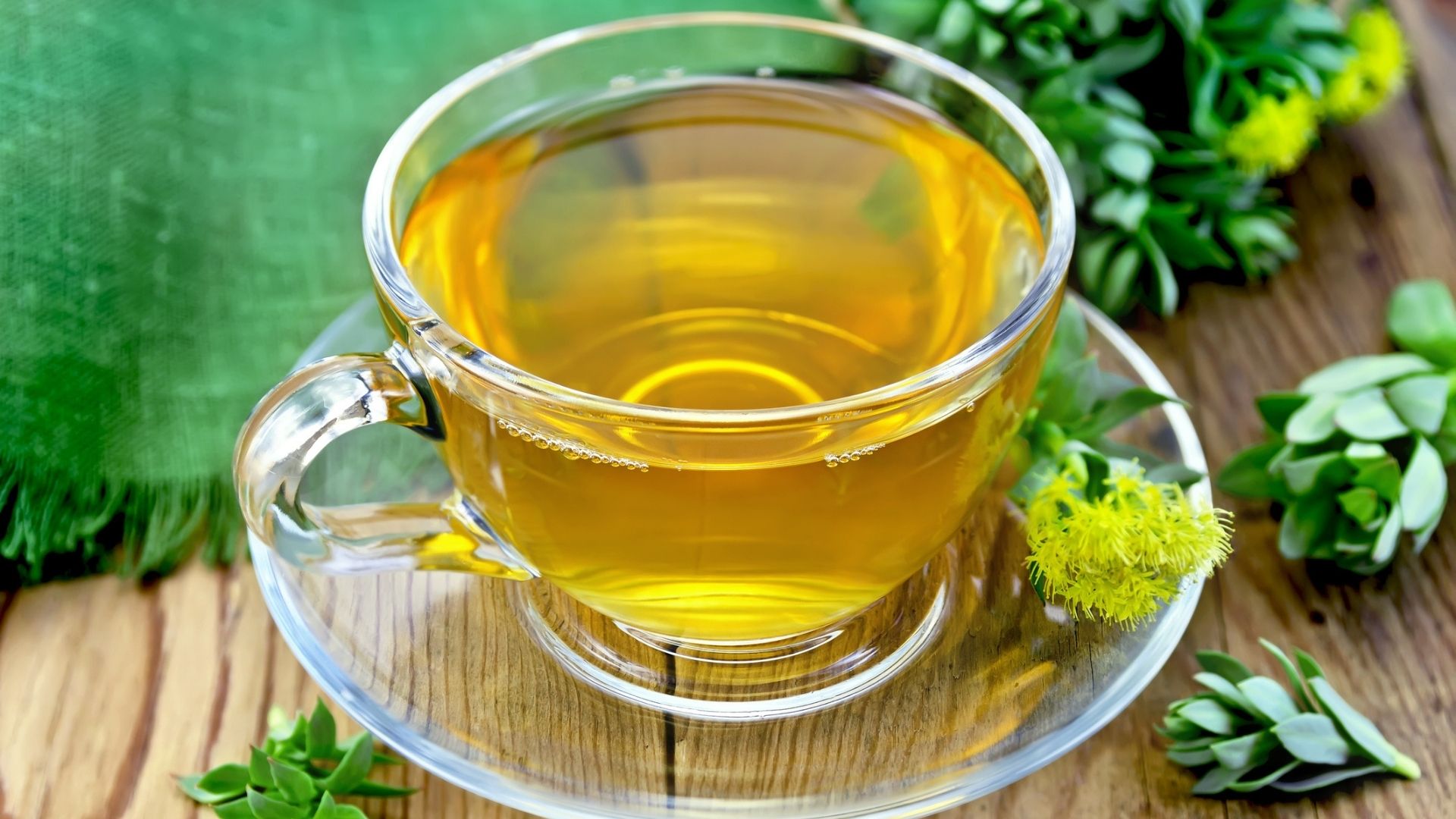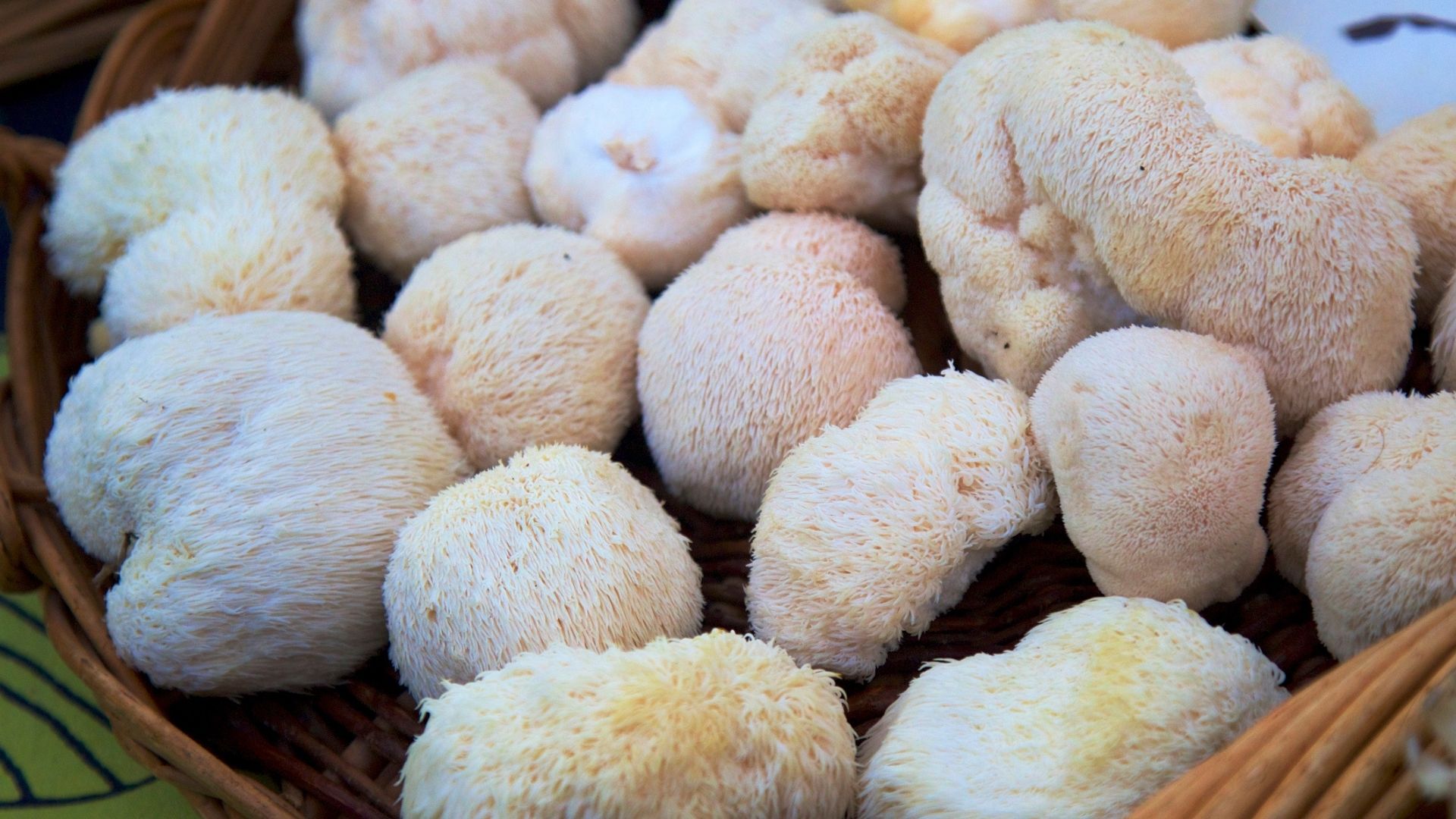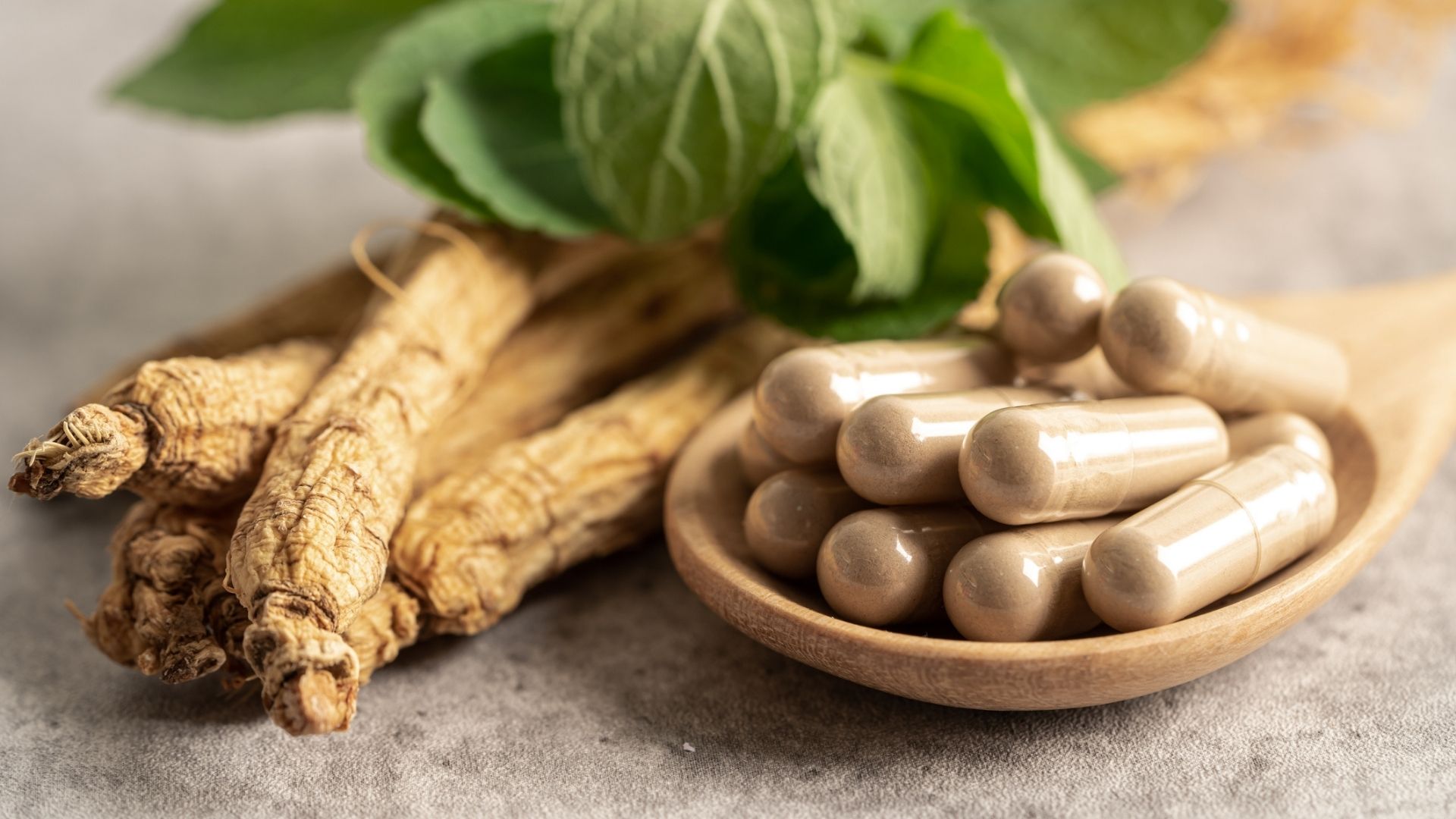What foods are adaptogens and what are their benefits?
What foods are adaptogens? A nutritionist highlights the best ones and explains how they can help with stress


Want to know what foods are adaptogens to incorporate more into your daily diet? Whether you're constantly feeling tired or want to help your immune system along, there are plenty out there that promote a huge range of benefits.
Adaptogens are typically herbs and fungi that help the body deal with stress and can aid performance by assisting the systems that reduce fatigue, depression, and anxiety, and improve mental performance. As a supplement though, they're meant for exactly that - supplementation. Having a balanced diet with plenty of fresh fruits, vitamins and minerals will keep your body healthy and adaptogens can work to take things one step further by helping to improve our physical response to stressors.
Whether you've never heard of adaptogens before or are curious about where you can find them as one of the biggest wellness trends of 2022, this is what you need to know about them, according to a specialist nutritionist.
What foods are adaptogens?
1. Cordyceps mushrooms
Cordyceps are medicinal mushrooms that provide a natural, caffeine-free energy boost without the crash that we associate with other stimulants, says Berry. This is what makes them one of the healthy coffee alternatives to try if you're looking to switch out traditional caffeine sources.
Benefits of cordyceps mushrooms: “Alongside its stress-relieving properties, it supports the body’s energy systems, oxygen delivery, and respiratory health,” clinical nutritionist Clarissa Berry, who also has a background in research science, says. “It’s also a popular pre-workout as it can enhance endurance, athletic performance, and recovery.”
It also supports the respiratory system with studies by Capital Medical University showing it may be beneficial for those with asthma, as it contributes to improved lung function, and therefore, fewer instances of symptom flare-ups.
“Cordyceps mushrooms can boost your sex drive, help fight fatigue, and they’re packed with antioxidants that offer protection against the negative effects of aging.”
Sign up to our free daily email for the latest royal and entertainment news, interesting opinion, expert advice on styling and beauty trends, and no-nonsense guides to the health and wellness questions you want answered.

2. Ashwagandha
Ashwagandha is a type of shrub, unlike cordyceps mushrooms. It grows in India, parts of Africa, and the Middle East, and is probably one of the most famous adaptogens.
It's been used in traditional medicine for hundreds of years but much like cordyceps, ashwagandha is normally consumed in herbal teas and other infusions, including coffee and cacao.
Benefits of ashwagandha: “This Ayurvedic herb has been used for thousands of years in India for its balancing effects. It’s incredible for reducing stress and anxiety by reducing cortisol levels, and it can significantly improve sleep quality,” says nutritionist Clarissa Berry. So if you're looking for how to sleep better, an ashwagandha infusion tea before bed could be the answer.
Studies linked to Hebrew University Medical Faculty have also shown it can help to balance blood sugar, reduce inflammation, and may even enhance male fertility thanks to a compound in the shrub called withaferin A.
“Ashwagandha is a fantastic option if you’re looking for support with both stress and sleep,” Berry, who also works alongside adaptogen brand DIRTEA, says.

3. Rhodiola
Another popular adaptogen, rhodiola is a root that grows in mountainous Europe and Asia. "Its ability to balance the body’s systems makes it a powerful aid against stress and fatigue,” Berry tells us.
If you're wondering what foods are adaptogens and contain rhodiola, then a trip to the market may be required as this popular adaptogen is mainly found in herbal teas and infusions promoting sleep-inducing effects.
Benefits of rhodiola: “It may help to improve brain function and physical performance,” Berry says. “It also has a positive effect on mood, with studies from University of Pennsylvania Perelman School of Medicine indicating that it may help to reduce symptoms of depression.”
While no adaptogen is going to be a replacement for adequate mental health support, this study compared the effects of rhodiola with sertraline, a commonly-prescribed anti-depressant. Both reduced symptoms of depression overall, with sertraline having the better effect, but rhodiola produced fewer side effects and was better tolerated by the 57 participants.

4. Lion's mane
Lion’s mane is another functional mushroom, similar to cordyceps. As this shroom grows, it forms a shaggy outer shell, similar to a lion's mane which is where it gets the name from.
Lion's mane can be consumed raw, cooked, or dried, making it one of the most versatile mushrooms. It's commonly ground down into capsule form, however.
Benefits of lion's mane: “It has incredible benefits for the nervous system,” Clarissa Berry says. “It can boost mental performance, memory, and focus, making it a wonderful addition to your morning routine. It’s also mood-balancing, reduces inflammation, and supports healthy digestion.” If you're considering a Sunday reset routine, Lion’s mane could be a great way to wind down for the start of the new week.
Research from the University of Malaya suggests it may also be protective against dementia, given its ability to stimulate the growth and repair of nerve cells. For the same reason, some experts believe lion’s mane may offer support for those with Lyme’s disease.

5. Panax
Panax, or Asian ginseng, is a plant that's used in traditional Chinese medicine for its powerful medicinal properties. So much so, in fact, that its name comes from a word meaning “cure-all”.
Other types of ginseng include American and Siberian, which are also considered adaptogens and offer similar benefits.
Benefits of panax: “It’s another adaptogen that provides a natural, caffeine-free energy boost and an increase in mental alertness,” says Berry. Some studies from the Medical School of Nantong University show that it can also improve memory and brain function, including memory and mood, help control blood sugar and strengthen the immune system.
A further study of ginseng by Chonbuk National University suggests that the root can improve blood circulation, which as well as helping the muscles get what they need, aids the proper functioning of the digestive system.
6. Maca
Maca is another type of ginseng with amazing abilities. It's found in the Andes mountains typically and is also known as Peruvian ginseng.
When it comes to what foods are adaptogens that contain maca, you'll have more luck finding it as many online health stores stock the adaptogen in powder or tablet form.
Benefits of maca: “Maca has been found to improve the body’s hormone balance, and studies from Charles Sturt University show benefits for aiding symptoms of menopause, PMS, and male fertility,” Berry explains. “It may also improve libido and enhance mood.”
What are the best adaptogens?
Panax, otherwise known as Asian ginseng, is the best adaptogen if you’re considering which one is the most powerful. According to the first comprehensive study on the herb by various departments at the Changchun University of Chinese Medicine, it has two compounds: ginsenosides and gintonin, which offer a strong invigorating effect.
The review found that these compounds can help to treat cardiovascular and metabolic diseases and improve the general quality of life, including sleep quality, mental health, and social functioning.
But if you want to know what foods are adaptogens to learn about stress and relaxing your mind, then you’ll want to try Panax quinquefolius (otherwise known as American ginseng). A study by Gachon University found that the herb helped to reduce body temperature in the short term and levels of serum thyroxin, a thyroid hormone.
However as every body is different, everybody will respond to adaptogens slightly differently. “Different adaptogens are suited to different people, so firstly I’d recommend finding the one or ones that feel best for you,” says Berry.

Grace Walsh is woman&home's Health Channel Editor, working across the areas of fitness, nutrition, sleep, mental health, relationships, and sex. She is also a qualified fitness instructor. In 2025, she will be taking on her third marathon in Brighton, completing her first ultra marathon, and qualifying as a certified personal trainer and nutrition coach.
A digital journalist with over seven years experience as a writer and editor for UK publications, Grace has covered (almost) everything in the world of health and wellbeing with bylines in Cosmopolitan, Red, The i Paper, GoodtoKnow, and more.